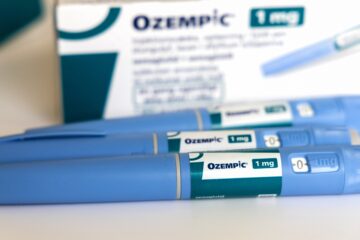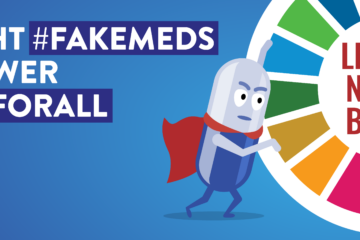If we had the opportunity to deliver a statement at the 152nd WHO Executive Board meeting, this is what we would have said in relation to Agenda item 5. Universal Health Coverage
Substandard & Falsified Medicines block the way to Universal Health Coverage
Reaching the shared and noble objectives to which Universal Health Coverage aspires requires not just ensuring that products are available when and where they are needed but also that these products are authentic and fully effective and safe. Failure to ensure access to safe, effective, quality, and affordable essential medicines and vaccines for all, fuels the spread of falsified and substandard medicines, can lead to repeated mass poisonings, and is a fundamental barrier to achieving universal health coverage.
Falsified and substandard medicines have direct negative consequences for people’s health, the wellbeing of communities, and countries’ socio-economic stability. These dangerous products can find their way into the supply chain and to the patient in many ways: through mislabelling, human negligence, intentional adulteration by manufacturers or suppliers to achieve higher profits, and through poor access to accredited facilities and licensed outlets. The need to address this issue is even more pressing in light of recent reports of contaminated cough mixtures that may have caused the deaths of hundreds of in several parts of the world. Furthermore, events such as the COVID-19 pandemic, armed conflicts, climate change and natural disasters can disrupt the supply chain and make the problem worse, as falsified and substandard medicines can be used to take advantage of a surge in demand and any resulting shortages.
To move forward in achieving effective Universal Health Coverage, it is essential to recognise and act on the relationship between substandard and falsified medicines and Universal Health Coverage. National governments can contribute to this progress by implementing a comprehensive strategy that includes integrating medicine quality assurance into health policies, strengthening regulatory systems, raising awareness among relevant parties, and investing in technology. Investments need to be made in the legitimate supply chain, to ensure proper handling and quality standards are maintained, and to reduce the informal supply chains that are often unregulated and appear when products patients need are not readily available. In addition, substandard and falsified medicines create an additional burden to health systems and effective UHC since falsified and substandard medicines can result in worsening illness requiring additional treatment or hospitalisation, or even death. They also create mistrust in the entire health system.
Fight the Fakes Alliance believes that everyone should have access to quality-assured medicines and asks for your support in including this sentiment in the UHC agenda.










